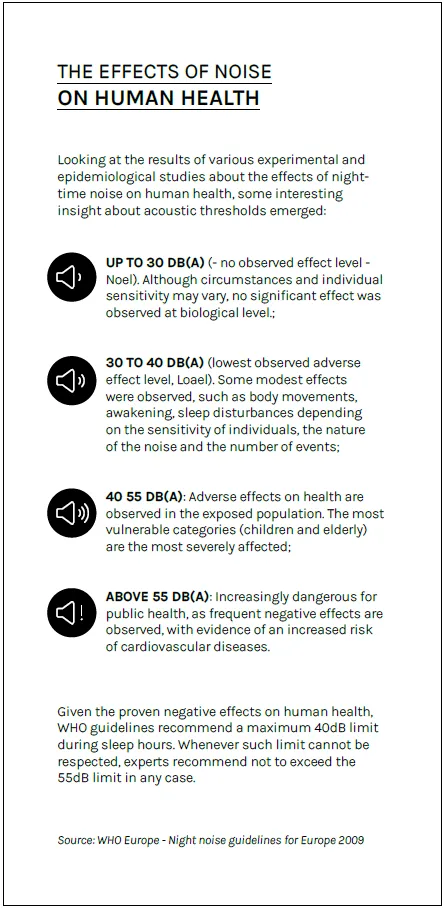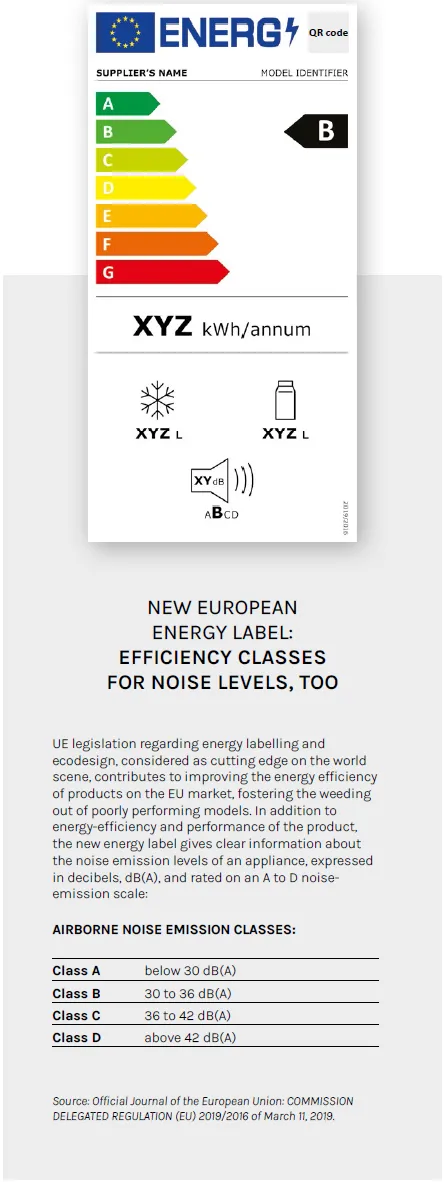
SILENCE CONTRIBUTES TO WELLBEING
Excessive noise emissions negatively impact the health of individuals, as confirmed by the World Health Organisation, which identifies noise pollution as the second cause for health problems just after atmospheric pollution by particulate matter. Also, the European Environment Agency considers that ambient noise puts the health of millions of people at risk. Long term exposure to noise pollution sources can lead to a number of issues: from nervousness to sleep disorders, to metabolic and cardiovascular troubles, to cognitive disturbances in children. Noise pollution principally concerns nondomestic environments: the constant noise of traffic, industrial activity and so forth. All the more reason homes are increasingly regarded as safe havens of peace and quiet. Better insulation in constructions, mainly for energy-efficiency purposes, has also provided protection from external disturbances, but as a result, the noise produced by domestic appliances becomes more noticeable, and bothersome: washing-machines, dishwashers, and especially refrigerators, can become a real nuisance.DOMESTIC REFRIGERATORS: THE MORE EFFICIENT ALSO HAPPEN TO BE THE MORE SILENT
In our homes, the refrigerator is the only appliance that works 24/7. Thanks to latest generation technology, the more modern units produce a little more than a slight hum. Some models are so silent they can hardly be heard at all, with noise levels between 30 and 40 dB which are reached only when the compressor is activated. This happens when the refrigerator needs to restore the optimal temperature inside the cavity for the correct preservation of food. Another component that can generate noise is the ventilation system, a useful feature that guarantees the even distribution of cool inside the fridge. Compared to the past, and along with the progress made on the energy-efficiency front, noise-levels of refrigerators have significantly decreased. Global trends in industrial design, and most of all EU regulations on energy-efficiency, are driving makers to produce appliances that comply with the new standards. The new European energy label rates the performance of an appliance in terms of both energy-efficiency and noise emissions. The system is widely recognised by consumers, allowing them to better compare products when purchasing a new appliance. It also encourages makers to improve their products and make them more competitive. Better sound performance is principally due to the use of advanced components such as latest generation compressors and ventilation systems, as well as inverter technology and high-grade insulating materials, like polyurethane rigid foam, in addition to specific solutions to absorb vibrations. In general, solutions that contribute to a higher energy-efficiency performance tend to reduce the frequency of refrigeration cycles: because of the reduced thermal dispersion and a more consistent and even temperature within the appliance, the compressor kicks in less frequently, hence the significant reduction of sound emissions.


Copyright © Homa 2023
All rights reserved

.jpg?VGhlIFBlcmZlY3QgU2xvdC1pbijmraPnoa4pLmpwZw==)












.jpg?MTkyMHg3MjDvvIhkZXPvvIkuanBn)
.jpg?MTAyNHg3NDDvvIhkZXPvvIkuanBn)



















